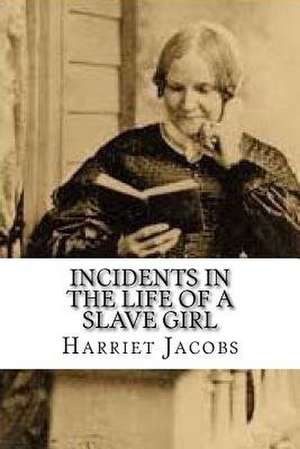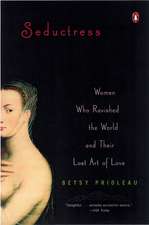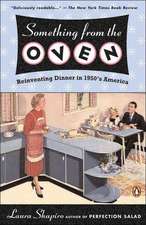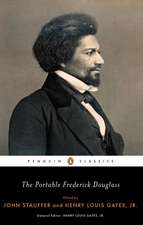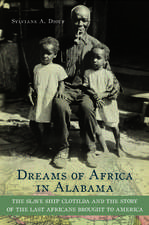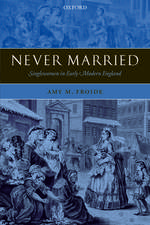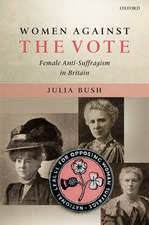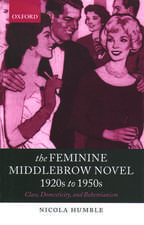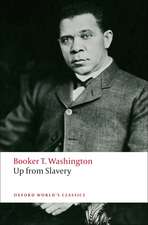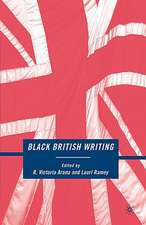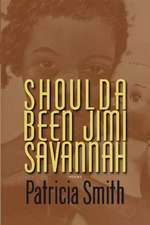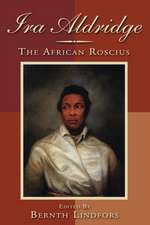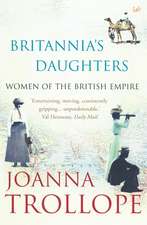Incidents in the Life of a Slave Girl
Autor Harriet Jacobsen Limba Engleză Paperback
Preț: 47.92 lei
Nou
Puncte Express: 72
Preț estimativ în valută:
9.17€ • 9.68$ • 7.64£
9.17€ • 9.68$ • 7.64£
Carte disponibilă
Livrare economică 12-26 decembrie
Preluare comenzi: 021 569.72.76
Specificații
ISBN-13: 9781539711995
ISBN-10: 1539711994
Pagini: 156
Dimensiuni: 152 x 229 x 8 mm
Greutate: 0.22 kg
ISBN-10: 1539711994
Pagini: 156
Dimensiuni: 152 x 229 x 8 mm
Greutate: 0.22 kg
Notă biografică
Harriet Jacobs (February 11, 1813 - March 7, 1897) was an African-American writer who escaped from slavery and was later freed. She became an abolitionist speaker and reformer. Jacobs began composing Incidents in the Life of a Slave Girl after her escape to New York. Portions of her journals were published in the New-York Tribune, however Jacobs's reports of sexual abuse were deemed too shocking for the average newspaper reader of the day, and publication ceased before the completion of the narrative. The autobiography was a reworking of the genres of slave narratives and sentimental novels, and was one of the first books to address the struggle for freedom by female slaves, exploring their struggles with sexual harassment and abuse, and their efforts to protect their roles as women and mothers. Incidents in the Life of a Slave Girl initially received favorable reviews, but it quickly lost attention due to the start of the American Civil War. After the war ended, readers who discovered the work were confused as to the identity of the author; because of the use of a pseudonym, some thought that the author was Lydia Maria Child, or abolitionist author Harriet Beecher Stowe. At the time, the book was accepted as a fictional novel. From then on, the accepted academic opinion voiced by historians, was that Incidents in the Life of a Slave Girl was a fictional novel written by Lydia Marie Child. While re-reading Incidents in the 1970s as part of a project to educate herself in the use of gender as a category of analysis, historian Jean Fagan Yellin became interested in the question of the text's true authorship. Over the course of a six-year effort, Yellin found and used a variety of historical documents, including from the Amy Post papers at the University of Rochester, state and local historical societies, and the Horniblow and Norcom papers at the North Carolina state archives, to establish both that Harriet Jacobs was the true author of Incidents, and that the narrative was her autobiography, not a work of fiction.
Descriere
Descriere de la o altă ediție sau format:
'The degradations, the wrongs, the vices, that grow out of slavery, are more than I can describe.'Harriet Jacobs was born a slave in the American South and went on to write one of the most extraordinary slave narratives. First published pseudonymously in 1861, Incidents in the Life of a Slave Girl describes Jacobs's treatment at the hands of her owners, her eventual escape to the North, and her perilous existence evading recapture as a fugitive slave. To save herself from sexual assault and protect her children she is forced to hide for seven years in a tiny attic space, suffering terrible psychological and physical pain.Written to expose the appalling treatment of slaves in the South and the racism of the free North, and to advance the abolitionist cause, Incidents is notable for its careful construction and literary effects. Jacobs's story of self-emancipation and a growing feminist consciousness is the tale of an individual and a searing indictment of slavery's inhumanity. This edition includes the short memoir by Jacobs's brother, John S. Jacobs, 'A True Tale of Slavery'.ABOUT THE SERIES: For over 100 years Oxford World's Classics has made available the widest range of literature from around the globe. Each affordable volume reflects Oxford's commitment to scholarship, providing the most accurate text plus a wealth of other valuable features, including expert introductions by leading authorities, helpful notes to clarify the text, up-to-date bibliographies for further study, and much more.
'The degradations, the wrongs, the vices, that grow out of slavery, are more than I can describe.'Harriet Jacobs was born a slave in the American South and went on to write one of the most extraordinary slave narratives. First published pseudonymously in 1861, Incidents in the Life of a Slave Girl describes Jacobs's treatment at the hands of her owners, her eventual escape to the North, and her perilous existence evading recapture as a fugitive slave. To save herself from sexual assault and protect her children she is forced to hide for seven years in a tiny attic space, suffering terrible psychological and physical pain.Written to expose the appalling treatment of slaves in the South and the racism of the free North, and to advance the abolitionist cause, Incidents is notable for its careful construction and literary effects. Jacobs's story of self-emancipation and a growing feminist consciousness is the tale of an individual and a searing indictment of slavery's inhumanity. This edition includes the short memoir by Jacobs's brother, John S. Jacobs, 'A True Tale of Slavery'.ABOUT THE SERIES: For over 100 years Oxford World's Classics has made available the widest range of literature from around the globe. Each affordable volume reflects Oxford's commitment to scholarship, providing the most accurate text plus a wealth of other valuable features, including expert introductions by leading authorities, helpful notes to clarify the text, up-to-date bibliographies for further study, and much more.
Recenzii
Few accounts of American slavery are as memorable as Jacobs' harrowing memoir. Born a slave in North Carolina in 1813, Harriet was in her teens when her owner, Dr James Norcom, first started to proposition her. Harriet was forced to take refuge in her grandmother's tiny attic for nearly seven years, before finally escaping to the North. R J Ellis's introduction to this latest edition is an insightful overview of the slave narrative for a new generation of readers.
Jacob's story is so dramatic, so illustrative of the horrors of slavery - the sickening violence, the waste of potential, the unpredictability of lives lived according to slave owner's caprices - that is almost reads as a novel
It's easy to be appalled at the notion of slavery, but this astonishing account, published in 1861, by Harriet Jacobs, born a slave in the American South, emphasises the personal experience. She makes us feel the minutiae of daily life as a slave.
Jacob's story is so dramatic, so illustrative of the horrors of slavery - the sickening violence, the waste of potential, the unpredictability of lives lived according to slave owner's caprices - that is almost reads as a novel
It's easy to be appalled at the notion of slavery, but this astonishing account, published in 1861, by Harriet Jacobs, born a slave in the American South, emphasises the personal experience. She makes us feel the minutiae of daily life as a slave.
